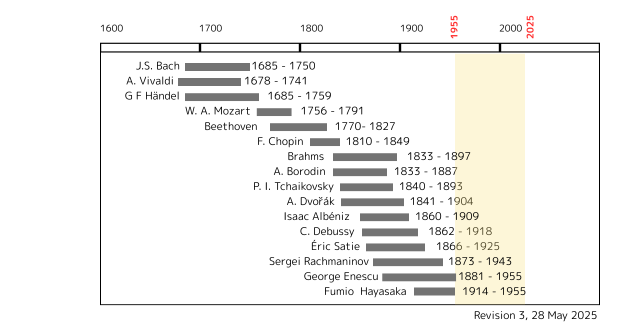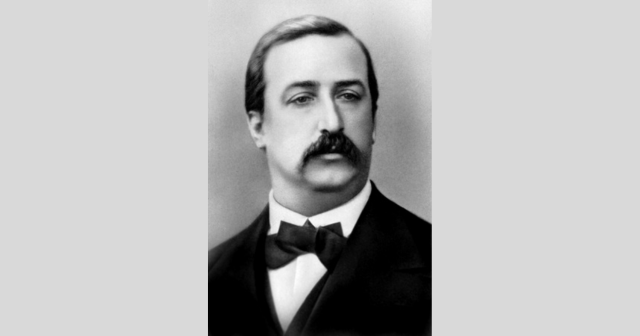Except from a long opera “Prince Igor” written by Alexander Borodin, Russia.
Prince Igor (Russian: Князь Игорь, romanized: Knyaz Igor) is an opera in four acts with a prologue. The composer adapted the libretto from the early Russian epic The Lay of Igor’s Host, which recounts the campaign of the 12th-century prince Igor Svyatoslavich against the invading Cuman (“Polovtsian”) tribes in 1185.
The overture and “Polovtsian Dances” (Dances of the Tartars) from Act II of this opera are famous and are widely performed in orchestra concerts and other settings.
『イーゴリ公』(イーゴリこう、原題:Князь Игорь)は、中世ロシアの叙事詩『イーゴリ遠征物語』を題材に、1185年、キエフ大公国の公(クニャージ)イーゴリ・スヴャトスラヴィチによる、遊牧民族ポロヴェツ人(韃靼人)に対する遠征を描いた歌劇。序幕付き4幕からなる。
このオペラの中の序曲、「ポロヴェツ人(韃靼人)の踊り」(第2幕)は有名で、広くオーケストラのコンサートで演奏されている。(だったん人の踊り)
Alexander Porfiryevich Borodin (12 November 1833 – 27 February 1887) was a Russian Romantic composer and chemist of Georgian–Russian parentage. He was one of the prominent 19th-century composers known as “The Five”, a group dedicated to producing a “uniquely Russian” kind of classical music. Borodin is known best for his symphonies, his two string quartets, the symphonic poem In the Steppes of Central Asia and his opera Prince Igor.
アレクサンドル・ポルフィリエヴィチ・ボロディン(1833年11月12日 – 1887年2月27日)は、ジョージア系ロシア人の親を持つロシアのロマン派作曲家、化学者。「ロシア五人組」として知られる19世紀の著名な作曲家グループの一員で、独自の「ロシア的」なクラシック音楽を生み出すことを目指していた。ボロディンは、交響曲、2つの弦楽四重奏曲、交響詩『中央アジアの草原にて』、および歌劇『イーゴリ公』で最もよく知られている。


コメント